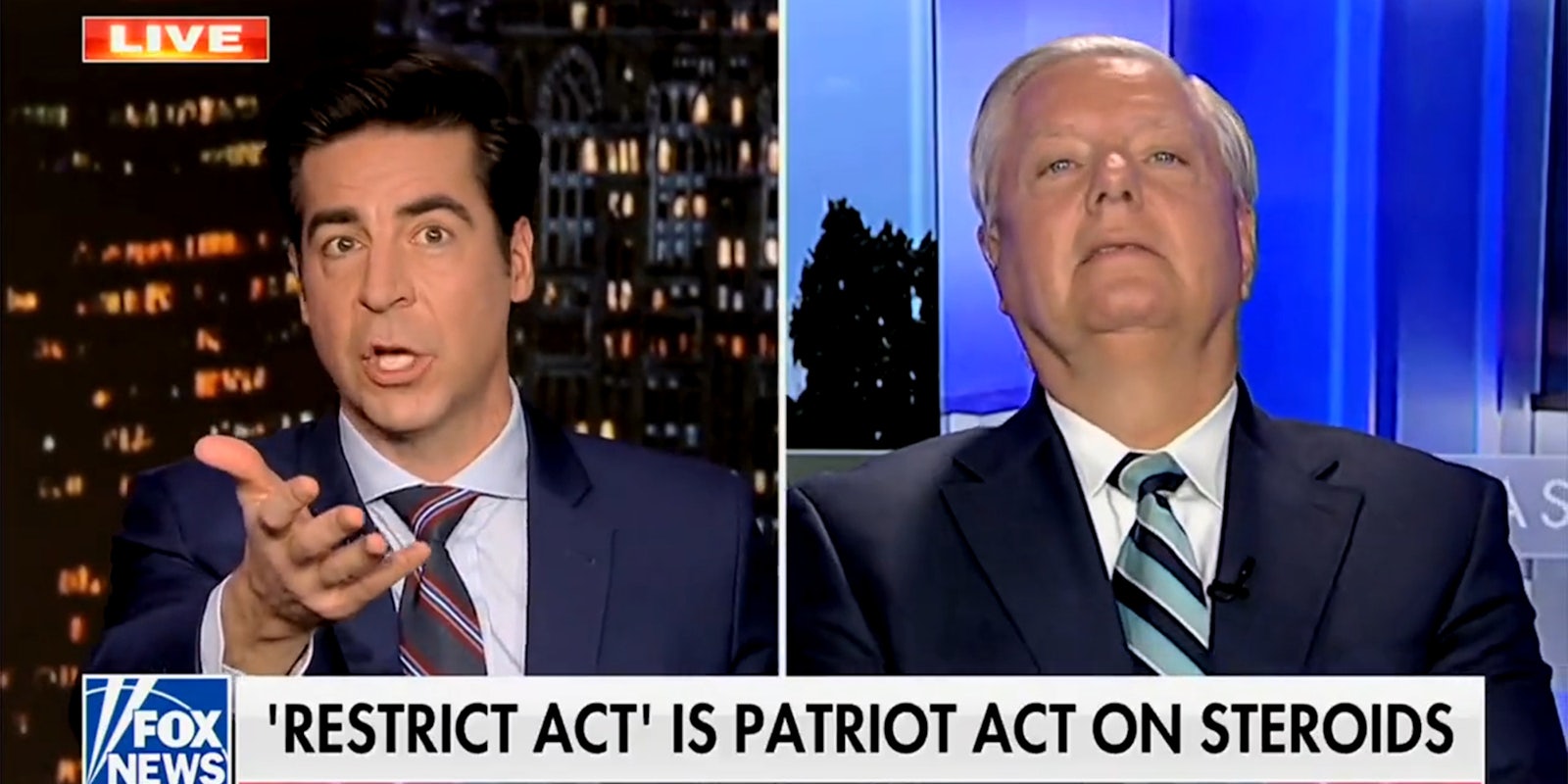Fox News host Jesse Watters criticized Sen. Lindsey Graham (R-S.C.) on Wednesday over his support for the RESTRICT Act, marking a clear turn in conservatives’ feelings towards the legislation that could give President Joe Biden the power to ban TikTok.
Graham appeared on Waters’ show on Wednesday to talk about the bill, introduced by Sen. John Thune (R-S.D.) and Sen Mark Warner (D-Va.) earlier this month. The Restricting the Emergence of Security Threats that Risk Information and Communications Technology (RESTRICT) Act would allow the Secretary of Commerce to review and prohibit transactions between U.S. companies and businesses in certain foreign countries.
China, Cuba, Iran, Russia, North Korea, and Venezuela are the countries currently listed in the legislation, but the main focus of the legislation and the fervor around it has been TikTok and its relationship with China.
The bill was promptly supported by the White House after its rollout.
However, concerns and hyperbolic claims spread online about the bill this week, causing some people to say Americans could face penalties for using Virtual Private Networks (VPNs) to access content that could be banned in the country.
The bill most likely would not penalize VPN users or fine them a million dollars, according to comments from Warner to the Daily Dot. But some of its broad language has been compared to the PATRIOT Act, with people warning the bill could vastly increase the amount of digital surveillance the U.S. could conduct on its citizens under the auspices of national security.
In his segment, Watters’ chyron called the RESTRICT Act the PATRIOT Act on “steroids.”
As the online backlash grew, Republicans began sounding the alarm on the RESTRICT Act. Yesterday, Sen. Rand Paul (R-Ky.) blocked a proposal to fast-track a TikTok ban in the Senate and said the RESTRICT Act would “would basically be a limitless authority for the president to ban speech.”
Sen Josh Hawley (R-Mo.) also denounced the RESTRICT Act and said the legislation goes too far in granting authority to the government and that it should only ban TikTok.
“We shouldn’t give new open-ended authority to federal bureaucrats, we should target [TikTok] specifically,” he said Wednesday.
Former Republican Justin Amash said on Twitter that the RESTRICT Act is “about controlling you,” echoing concerns raised by internet rights groups following the bill’s release.
“It gives broad powers to the executive branch, with few checks, and will be abused in every way you can imagine,” he said.
Meanwhile, while Graham is listed as a co-sponsor of the bill, he said in the interview he didn’t support the bill.
“I don’t think I support the RESTRICT Act,” Graham said.
Graham tried to backpedal and said he was concerned about TikTok’s relationship with China.
“Here’s the problem as I see it, China is the parent company of TikTok, and my nieces like TikTok. I don’t mind them using TikTok, I just don’t want the Chinese government to seize all their data, and manipulate the information Americans see for political purposes,” he said.
Graham also said that he thinks the Constitution would trump any statute created by Congress, trying to assuage Watters’ fears, although he didn’t explain why he co-sponsored a bill that might be unconstitutional.
“You’ve made these allegations and I’ll come answer better next time,” Graham said, promising a bill that doesn’t violate the Constitution but still cracks down on China.


